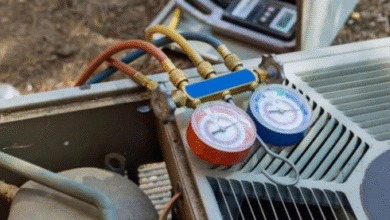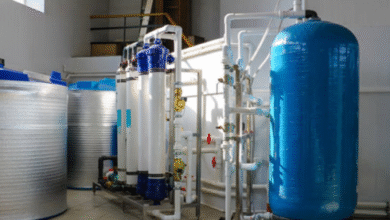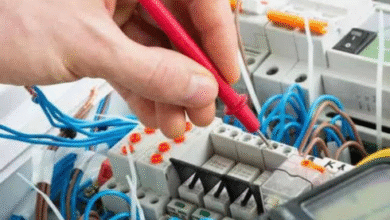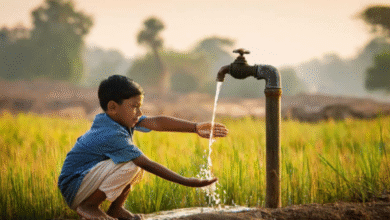Rethinking Water: From Homes to Industries, Smarter Ways to Stay Sustainable
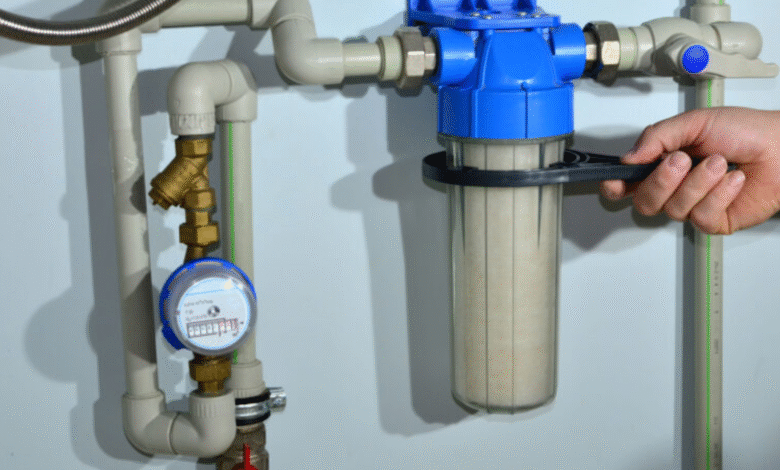
There’s something quietly comforting about turning on a tap and knowing that clean water will flow. It’s one of those everyday luxuries many of us rarely think twice about, yet behind that steady stream lies a world of infrastructure, innovation, and sometimes… neglect. Water is one of the most basic human needs, but it’s also one of the most overlooked when it comes to how we source, use, and protect it. With climate change, population growth, and rising environmental awareness, the conversation around smarter water solutions has become impossible to ignore.
We’re no longer just talking about what’s safe to drink. We’re talking about a shift—a cultural, environmental, and even economic transition—from relying on packaged convenience to embracing systems designed to last. The journey spans kitchens, entire households, and even large-scale industrial facilities. And in each case, the underlying question is the same: how can we treat water more responsibly without compromising on quality or convenience?
Moving Beyond the Plastic Bottle
Think about how often bottled water has been pitched as the “healthier” or “safer” option. It’s easy to see the appeal: it’s portable, it’s consistent, and it feels reliable. But stack those plastic bottles in a recycling bin (or worse, see them tossed into landfills and oceans), and the problem suddenly looks overwhelming.
That’s where bottled water alternative systems come into the picture. Instead of leaning on single-use plastics, these setups—ranging from compact countertop purifiers to advanced refill stations—offer water that’s not just clean but also sustainable. They’re about giving people the same peace of mind bottled water promises, but without the environmental guilt. Some offices and schools have already swapped vending machines for refill kiosks, and at home, many families are realizing it’s cheaper in the long run to install a filter than to keep lugging cases of water from the store.
The bigger shift here isn’t just about convenience—it’s about breaking habits. Once you start trusting the water from your system, bottled water suddenly feels outdated. It’s like clinging to CDs in a world where streaming exists.
Clean Water, Room to Room
Of course, hydration isn’t the only reason we need clean water. Showers, laundry, cooking, even the dishwasher—water touches nearly everything we do inside a home. And while a sink-top filter might handle drinking water, it doesn’t tackle the bigger picture. That’s where whole house water filtration steps in, making sure that every faucet, showerhead, and appliance is fed with cleaner, safer water.
For anyone who’s lived with hard water, the benefits are obvious: fewer stains on sinks, softer laundry, and a noticeable difference in skin and hair health. But the real kicker is what it does behind the scenes. Pipes, heaters, and washing machines last longer because they’re not corroding or clogging up with mineral buildup. It’s one of those upgrades that isn’t flashy but slowly proves its worth day by day.
I’ve heard homeowners compare it to upgrading insulation in a house—you don’t “see” it, but you feel the difference, and your bills thank you for it.
The Industrial Side of Water
Zoom out even further, and water becomes a serious business issue. Factories, refineries, food processing plants—nearly every industrial sector depends on massive volumes of water. The challenge? When that water comes out dirty, contaminated, or full of chemicals, it can’t just be dumped back into rivers or sewers. Regulations are strict, and rightly so.
Enter industrial wastewater treatment contractors, the unsung problem-solvers who step in when water leaves the “safe for use” category. These experts design and maintain systems that clean industrial effluent, making it safe for disposal or even reuse. For some companies, treated water becomes part of a recycling loop, cutting down overall consumption and saving costs in the long term.
It’s not glamorous work, but it’s critical. Without these systems, many industries would face crippling fines or even shutdowns. More importantly, the local communities surrounding these facilities would be exposed to serious environmental risks. The way I see it, these contractors aren’t just service providers—they’re gatekeepers of public health.
A Cultural Shift in Progress
The fascinating part about all of this is how connected it really is. On one side, you’ve got individuals questioning whether they need to keep buying bottled water. On another, families are investing in systems that protect their homes from contaminants. And at the far end, industries are taking responsibility for the waste they generate.
It’s a spectrum of solutions that, when stitched together, reflects a larger cultural awareness: water isn’t something we can take for granted anymore. Every choice—from filling a reusable bottle to supporting stricter industrial standards—feeds into a bigger story of sustainability.
And unlike some global challenges that feel too abstract or too distant, this one happens right at our taps. Every time we turn the handle, we’re part of the system.
Practical Considerations and Everyday Choices
Of course, the question many people ask is: “Where do I even start?” The good news is that the options are flexible. For a college student in a dorm, it might be as simple as a compact purifier jug. For a family of five in a suburban home, a full-house system might make more sense. And for small businesses—cafés, gyms, coworking spaces—offering filtered water stations can be both cost-effective and a goodwill gesture toward customers.
The trick is to look beyond the immediate sticker price. A $30 filter jug seems cheaper than a $2,000 system, but when you calculate bottled water purchases, appliance wear-and-tear, or even medical bills from questionable water quality, the long-term math flips. The same logic applies at the industrial scale, where upfront investment in treatment often saves millions in compliance and sustainability costs down the line.
Closing Thoughts
When you think about it, water tells a story of balance. We need it desperately, but we also tend to waste it. We celebrate its purity, yet pollute it carelessly. The solutions—whether at the scale of a reusable bottle or a treatment plant—are about restoring that balance, making sure the next generation doesn’t look back at us and wonder why we didn’t act sooner.
So maybe the next time you pour a glass, wash your hands, or see steam rising from a factory stack, you’ll pause for just a second. Not with guilt or fear, but with an appreciation that change is happening—that smarter, more responsible water practices are becoming the norm. And maybe, just maybe, we’ll get to a point where clean, sustainable water is not a privilege, but the default.
